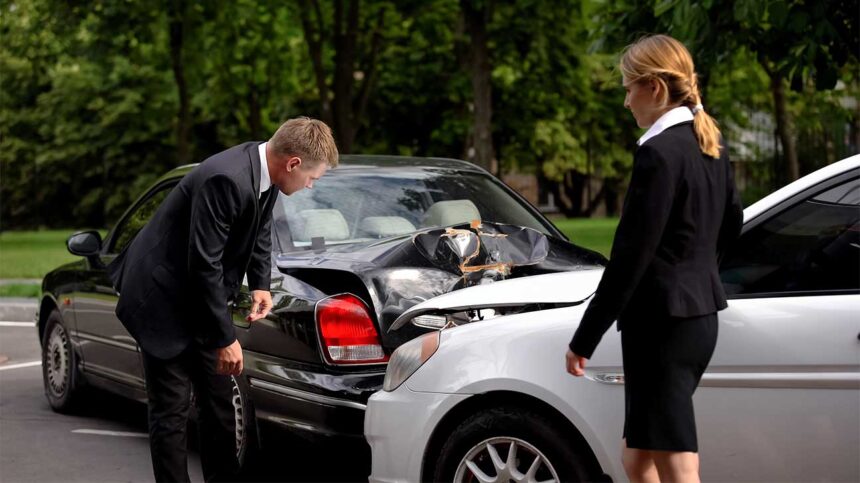A car accident typically happens in an instant, and just like that, you’re in the midst of confusion and uncertainty. Your heart races, and a million questions flood your mind. What do you do next? How do you handle this unexpected twist?
The very fabric of your day shifts, and now you’re in a situation where reporting a car accident becomes the immediate task at hand.
This guide will walk you through every detail of the reporting procedures, not just as a checklist, but as an expert roadmap to help you navigate through this challenging time.
Here are the steps to take after an accident:
Ensure everyone’s safety
The very first thing you need to do is ensure the safety of everyone involved. Check yourself, your passengers, and anyone in the other vehicle for injuries.
If anyone is hurt, call emergency services immediately. If the accident occurred in a dangerous location, such as on a busy highway, try to move to a safer spot if possible.
Call the Authorities
Regardless of the severity of the accident, it’s usually a good idea to call the police. They can help document the scene and create an official report at the station. This report can be obtained by your lawyer in the event that you are to pursue insurance claims or any potential legal proceedings.
When the police arrive, provide them with accurate information about the accident, but then again, you have to avoid admitting fault or making statements that could be misinterpreted.
If the police do not come to the scene, or if you are in a location where they cannot be dispatched, you should file a report with the local police department yourself as soon as possible.
Exchange Information with the Appropriate Parties
After the authorities have been notified and everyone is safe, you need to exchange information with the other parties involved in the accident. This includes:
- Full names
- Contact information (phone numbers, addresses)
- Insurance details (policy numbers, company names)
- Driver’s license numbers
- Vehicle registration information
It’s also helpful to gather contact details from any witnesses to the accident, as their accounts might support your version of events.
Get Yourself Medically Assessed
Sometimes, injuries from a car accident aren’t immediately obvious. For instance, you might not feel pain right away because adrenaline is masking it, or you might think you’re just a bit sore. However, some injuries can be serious and show up later, like whiplash or internal trauma.
When you visit a doctor or go to the emergency room, make sure to describe all the symptoms you’re feeling, even if they seem minor. This helps the medical staff understand the full scope of your condition and ensures you get the right treatment.
Notify Your Insurance Company
Contact your insurance company as soon as possible to report the accident. Most insurance policies require prompt notification, so informing them quickly can help with your claim process. When speaking with your insurer, provide:
- Accident Details: A clear description of what happened, including the date, time, and location.
- Information Exchange: All the details you collected from the other driver(s).
- Police Report Number: If applicable, give the insurance company the police report number.
Your insurance company will guide you on the next steps, and they may send an adjuster to assess the damage to your vehicle. At this stage, you should also consider hiring a car accident lawyer, as you’ll need someone with legal expertise to tackle the insurance adjuster.
Repair and Recover
Once you’ve handled the reporting procedures, focus on getting your vehicle repaired and recovering from any physical or emotional impact of the accident.
Your insurance company might assist in arranging repairs or providing a rental vehicle while yours is being fixed.
Hiring a Lawyer
If the accident involves significant damage or serious injuries, or if there’s a dispute about who’s at fault, consulting with a lawyer can be a smart move.
A lawyer can hold your hand through the legal aspects involved in the aftermath of an accident. They will ensure that your rights are protected and that you’re not taken advantage of by insurance companies or other parties involved.
When looking for a lawyer, find someone who specializes in personal injury or car accident cases. It’s important that they understand the specifics of these cases and can offer advice tailored to your situation.
Don’t hesitate to ask them about their experience, their approach to handling cases, and how they plan to communicate with you throughout the process.






